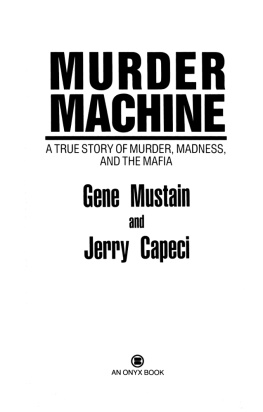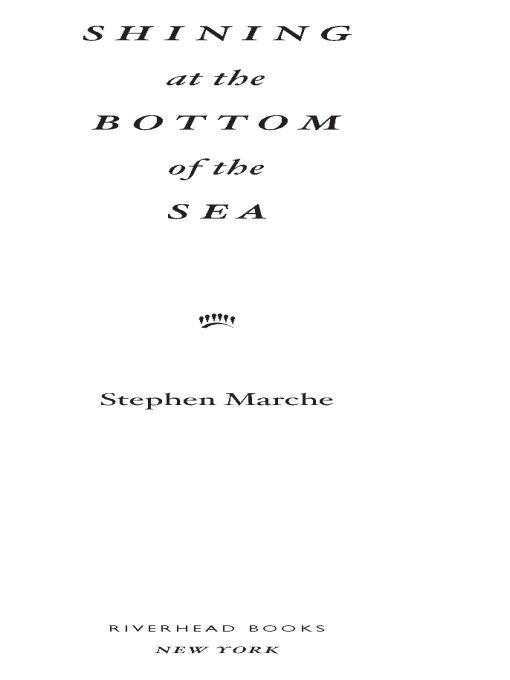Table of Contents
His choices in this anthology have surprised me in the most intimate way, Leonard King writes in his foreword. And surprised he should be, since he is one of Mr. Marches creations too. Or as Mr. Marche himself puts it in his preface: You have never read anything like it. The New York Times
We are, in other words, in the land of Borges, and the experience of reading the book is unlike that of reading any other anthology, or indeed of any other book.... One does not read for the quality of the stories (though there is wonderful invention and extraordinary writing here) as much for the pleasure of being offered a whole nation, complete with its own dialects, proverbs, emotional tendencies, political history, literary movements, and nationalistic qualms.... Shining is a real tour de force, ingenious and hilarious, a tour of the island of one writers fertile mind.San Francisco Chronicle
If you love books, literature, bewitching tales well told, and flights of fancy, youll be hooked simply by reading [the] first two sentences of Stephen Marches brilliant little jewel of a novel.... What Marche creates with his made-up words and grammar often suggests an exhilarating collision of e.e. cummings, Dr. Seuss, and Chaucer.The Seattle Times
As Sanjania goes through an independence movement and postcolonial dictatorship during the twentieth century, the writing styles reflect international fashion, from the Hemingway-influenced clean writing movement of Blessed Shirley to the supposed magical realism of covetown life in, for instance, A Wedding in Restitution (later made into a festival-sweeping film). In keeping with the academic anthology structure, Marche provides a preface, an index of author biographies, and a selection of Sanjanian criticismall straight-faced, and all perfect. Marches concept is fascinating.Publishers Weekly
Creating an entire countryits flora, fauna, and stormy historyis no mean feat, and Marche manages to keep his off-kilter history vibrant.... Marche gracefully inhabits so many voices that he leaves us thoroughly enchanted, and maybe even hoping for a trip to this make-believe world.Time Out New York
Like a walk along Marches invented island, this novel opens always to new breathtaking vistas. All hail this brave and ingenious act of storytelling.Andrew Sean Greer, author of The Confessions of Max Tivoli
Untrammeled, unfettered, unprecedented, unself-conscious, and friggin unbelievable, this book busts the novel open, makes literature an open question, and maps out brave new worlds for the reader to spelunk. With Raymond and Hannah, I knew this guy was up to something brilliant. Shining at the Bottom of the Sea tells me I hadnt the faintest idea.Daniel Handler, author of Adverbs
It has been said that great writers emerge from minor literatures (think Kafka, think Joyce). Stephen Marche has gone further still, and created his own minor literature, with its own surreal turns and linguistic flourishes. Theres a little Joyce here, and a little Kafka, too, but Shining at the Bottom of the Sea is mostly Sanjanian, and delightful.Paul LaFarge, author of Haussmann, or The Distinction and The Artist of the Missing
What Marche accomplishes in Shining at the Bottom of the Sea is astonishing.... Its a bold book that does nothing less than reinvent narrative and the ways in which it can be used to tell stories large and small.BookPage
The conceptual ingenuity of this volumean anthology that purports to document the literary progression and legacy of an imaginary islandoffers flashes of metafictional illumination.
Kirkus Reviews
ALSO BY STEPHEN MARCHE
Raymond and Hannah
To Sarah
FOREWORD
Sanjanians are perhaps the most literary people on earth. Bookstalls are as common as fruit stands, the theatres around Saint Magdalenes Square dwarf the City Hall, and on Sanjair flights the stewards push small carts of books down the aisle after the beverages and pretzels. Nearly a thousand people, I remember, filled the auditorium for my first public reading after I slunk home from exile in 1994. I also remember a young woman who stood up during the question period at the end to ask, in a tone between greeting and accusation, the way a mother might speak to a mischievous child returning from a days pranks: Where have you been?
She was a beautiful young woman. She had tucked a tiger lily behind her right ear for the occasion.
At the time, I muttered how I had lived in Rome and Paris, with stints in London, as if the question had been posed literally. For many years after, I wished I had replied, Ive been here all along, as I had been in spirit. Today, if that young, beautiful woman were to appear to me with that tiger lily in her hair and her lips blooming with that bold question, I would simply hand her Shining at the Bottom of the Sea, the book that you hold in your hands. These stories transport me into myself.
Let me explain. When I was a boy, family loyalty dictated that I help out in the inventory room during busy times at my uncles haberdashery on the Port Hope Mall. I spent many bright childhood Saturdays in a windowless room among hatboxes. Fortunately I was not alone. A small cabinet of old pamphlets that my uncle had carried with him from our home cove kept me company. That dusty back room thronged with daring men and dangerous women, and their joys and hatreds and confusion. My favourites, I remember, were the Professor Saintfrancis stories. I adored following that crippled genius, like an intellectual toreador, skewering Portlands crime by hearsay alone.
At college, in an even darker room than the back of my uncles shop, a friend who was later beaten to death in Simpson Street Gaol for dreaming beautiful dreams about the future of his country handed me my first Blessed Shirley story. I believed. At one reading, I believed. Not only could we face political reality through our fiction, we had to. And I remember being given a copy of The Masters Dog by Jenkins, copied by hand because of the ban imposed after its single print run twenty-five years earlier. We all believed then.
The struggles of my own work I must pass over. I dont remember much anyway: desks in various cities, flat surfaces between windows and beds, blind fury then at times floating free as though my thoughts were puffed full of helium. I recall crowds cheering my name in the public squares in Port Hope, and the polite applause of award ceremonies far, far from Sanjania.
Stories carried me home too, and my vanity cherishes the accidental fortune of having taught both Charity Gurton and Trinity Hopps introductory classes on Sanjanian literature. (I also taught two murderers and a Minister of Ocean Affairs.) And only five years ago, through my Sanjanian Graduate Seminar, I met Stephen Marche, our anthologist, the perfect shade of visitor to give us the photograph from the outer, as Kitteredge-Mann puts it (or the fresh air of the barbarian city, as I wrote in Melody). His choices in this anthology have surprised me in the most intimate way.
Some may ask if the world needs more Sanjanian fiction. My shelves are lined with anthologies already: Early Sanjanian Novels, The Pamphlets of Sanjan Island




![Harry Turtledove - Worlds that werent : [novellas of alternate history]](/uploads/posts/book/79050/thumbs/harry-turtledove-worlds-that-weren-t-novellas.jpg)



